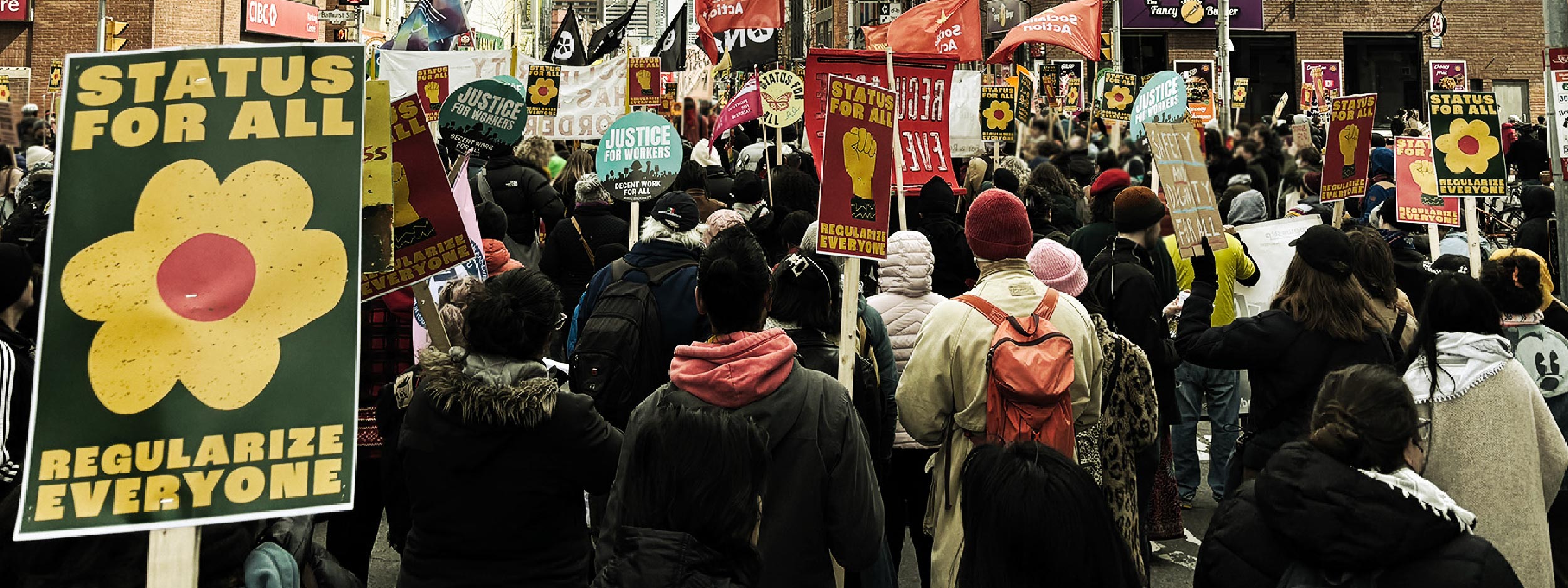Contemporary paradoxes and struggles of migration and belonging in Canada

CERC Migration Senior Research Associate John Carlaw‘s Contemporary Paradoxes and Struggles of Migration and Belonging in Canada project was recently announced as one of the winners of the most recent Social Sciences and Humanities Research Council of Canada Insight Development Grant competition.
John, co-applicant Ethel Tungohan (York University) and their team will synthesize existing multidisciplinary knowledge of the post-2015 Canadian migration landscape and add new empirical insights by identifying and comparing existing and emerging “projects” of migration and belonging across the country’s political spectrum. They hope their work will help stakeholders identify not only emerging threats but also evolving opportunities for more inclusive policies and politics of belonging in Canada in realms such as refugee protection and migrants’ access to permanent residence (external link) and citizenship.
Their team will examine primary source documents produced by organizations expressing their policy preferences, engage in critical policy discourse analysis and conduct interviews with government, political party and civil society representatives and stakeholder organizations.
According to John, several linked paradoxes and struggles require further exploration amid a rapidly shifting global and regional context. For example, while Canada’s permanent migration levels have increased significantly and although many Canadians have the self-image of being welcoming to immigrants and refugees, many migrants continue to experience unequal treatment and endure precarious immigration statuses that contribute to exploitation and violations of their rights. In terms of refugee protection, recent resettlement initiatives have demonstrated stark differences in how refugees from different regions are treated. At the same time, border-management developments have further complicated the situation, including the so-called modernization of the Canada-US Safe Third Country Agreement and the closure of the Roxham Road, Quebec, border crossing to asylum seekers. These changes to the policy landscape belie the typically warm rhetoric concerning refugees that Canadians tend to hear from Liberal rather than Conservative federal governments.
Increased economic insecurity is also impacting Canadians’ views on immigration, taking place amid growing global and local currents of right-wing extremism and misinformation and generating increased risks of affective political polarization and increased pressures for further policies and discourses that negatively impact migrants, immigrants and racialized members of society. These currents, however, are resisted by pro-migrant mobilizations “from below,” whose discourses and policy stances the team will also examine.
“The landscape of the politics and policies of migration and belonging in Canada has shifted rapidly in the last decade, from the increased prominence of the far right globally and locally to changes in governments in Canada and the United States as well as rapid shifts in public opinion and policy amid economic insecurity,” John said. “It’s important that we both take stock of and critically assess this terrain and the actors driving competing visions and policies that will determine Canada’s immigration future.”
Insight Development Grants support early-stage, short-term research, allowing experimentation with new methodologies and approaches. The recipients’ research topics range from migration to warranties and Northern food affordability to international environmental and human rights law.